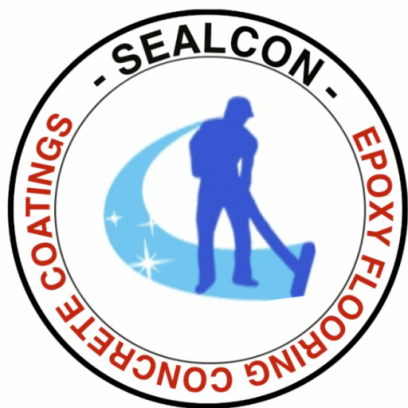Chemical resistant Flooring
Warehouse battery charging areas often experience acid spills, necessitating the application of chemical-resistant epoxy flooring.
When operating a battery charging station, it’s crucial to ensure that the concrete floors are adequately protected, this can be achieved by using protective coatings, such as epoxy or polyurea, which can provide chemical resistance and prevent wear and tear on the concrete surface. Additionally, implementing safety measures to contain any potential spills or leaks from the batteries is essential for maintaining the integrity of the floors. An epoxy-based chemical resistance flooring system is designed to withstand exposure to various chemicals and solvents. This type of flooring is commonly used in commercial, industrial, and laboratory settings where spills and exposure to chemicals are common. Epoxy flooring is known for its durability, seamless finish, and resistance to stains, making it an ideal choice for environments where chemical resistance is a priority.
Installing acid-resistant flooring for Battery Charging Area
Protecting floors in the battery charging area by installing acid-resistant epoxy flooring is a crucial safety measure this preventive step is taken to minimize damage and contain the risk of hazardous leaks due to acid spills. Alongside the proper ventilation and spill containment kits, acid-resistant flooring serves as a sturdy defence against potential damage and ensures a safer environment for employees.
To further bolster safety measures, providing spill containment pallets and conducting regular equipment maintenance and safety inspections are essential components of a comprehensive risk management strategy.

Where to Use Chemical Resistant Flooring
Chemical-resistant flooring is designed to withstand exposure to harsh chemicals, acids, and solvents. It is commonly used in laboratories, manufacturing facilities, chemical processing plants, warehouse storage areas, and other industrial environments where chemical spills or leaks are likely to occur. Chemical-resistant flooring for areas requiring frequent sanitization, such as pharmaceutical facilities, food processing plants, and healthcare settings.
Easy-to-clean flooring option
When considering flooring options for chemical manufacturing facilities or warehouse battery charging areas, it’s essential to prioritize safety and durability. The presence of batteries in these areas means potential spills or leaks of battery acid and other chemicals could occur. As a result, implementing chemical-resistant flooring is crucial to minimize the risk of corrosive damage and ensure a safe working environment. Additionally, the flooring should be easy to clean and maintain, contributing to overall efficiency and safety within the warehousing facility.

How to select proper protective floor coating
Chemical-resistant floor coatings for environments where exposure to corrosive substances is common. selecting a chemical-resistant floor coating, it’s important to consider the specific chemicals present as, the conditions the coating will be exposed to. Factors to assess include the type of chemicals, temperature fluctuations, abrasion resistance, and application method. Additionally, the substrate material must be taken into account to ensure proper adhesion, carefully evaluating these factors, you can choose the most suitable chemical-resistant floor coating for your specific environment. By addressing the needs of warehouse battery charging areas and Chemical manufacturing facilities with proper flooring solutions, businesses can effectively mitigate potential hazards and maintain a secure and compliant workspace for their employees.
Types of Chemical-resistant flooring
Chemical-resistant flooring is essential in environments where exposure to corrosive substances is a concern. Several types of flooring offer varying degrees of resistance:
- Epoxy Flooring: Known for its durability and protection against chemicals, Epoxy flooring is commonly used in industrial and commercial settings. It is highly customizable and can be tailored to specific chemical resistance requirements.
- Vinyl Ester Flooring: This type of flooring is particularly resistant to acids, making it suitable for environments where acid spills are a concern. It is commonly used in chemical processing plants and laboratories.
- Polyurethane Flooring: Polyurethane flooring offers excellent resistance to chemicals, including oils, solvents, and mild acids. It is a popular choice for manufacturing facilities and automotive workshops.
- Resin Flooring: Resin-based flooring systems are known for their chemical resistance and seamless finish, making them ideal for areas where spills are common. They are frequently used in pharmaceutical facilities and food processing plants.
Acid-resistant flooring for battery charging stations in a commercial and industrial environment
When choosing a chemical-resistant flooring that works for your environment, it’s important to consider the specific chemicals present in the environment and the required level of resistance. Sealcon flooring specialist can help determine the most suitable option for the intended application.
